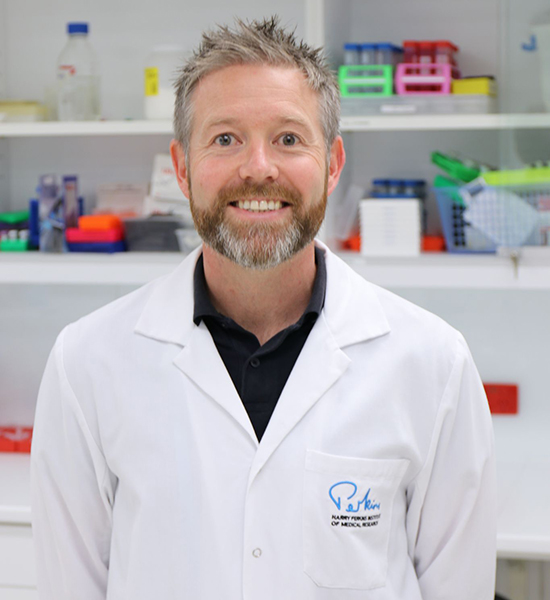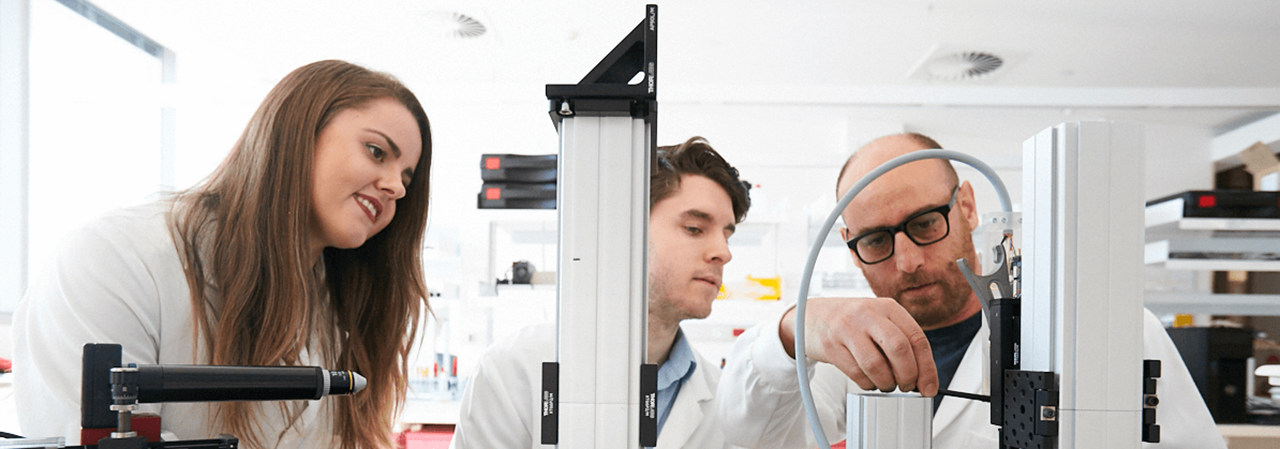If you’re interested in using engineering skills to develop technologies to improve health and patient care, biomedical engineering could be the study option for you.
A fascinating and interdisciplinary field, it could see you working in hospitals with clinicians to design and implement medical devices or in medical device companies to create next generation healthcare solutions.
We spoke with Associate Professor Barry Doyle about the benefits of specialising as a biomedical engineer and his career and research highlights so far.
Get to know one of our academics and the impact they have on society…

Alongside developing and teaching the Biomedical Engineering course at UWA, Barry is also joint Program Head of Cardiovascular Science and Diabetes and also Lab Head (Group Leader) of the Vascular Engineering Laboratory (VascLab) at the Harry Perkins Institute of Medical Research.
Barry feels lucky to work with an amazing group of engineers, scientists and clinicians, and his team has been awarded over 50 local and international prizes for their work.
"Studying something like biomedical engineering, where you can understand the fundamentals of engineering, but where you can think slightly differently and apply them to medicine and life sciences is extremely rewarding.
“It’s an exciting field where you’ll be working at the interface between engineering and medicine.
“I established the Vascular Engineering Lab (VascLab) in 2014 and we are based at UWA and the Harry Perkins Institute of Medical Research. We are a team of engineers, surgeons and scientists who apply cutting-edge engineering techniques to study cardiovascular health and disease.”
Recently, the team’s novel tool to treat heart disease was named as a finalist in the WA Innovator of the Year 2021 Awards. Apricot, an advanced coronary artery assessment tool, provides cardiologists with rapid information to treat patients with heart disease and could save lives lost from heart attacks.
“When treating patients, cardiologists often use many different types of images to see the problem.
“Apricot merges the different images together to create an advanced 3D visualisation of the diseased artery.
“The software then performs engineering simulations, similar to what is used in oil and gas pipelines, to update the images with this new information. Apricot aims to do this in real-time while the patient is being treated in hospital, allowing the cardiologist to make better decisions and improve patient outcomes.”
A fast-growing field
As technology plays an increasingly critical role in medicine and healthcare, Barry sees the demand for biomedical engineers growing.
“Biomedical engineers have the opportunity to be a part of the next generation of truly ground-breaking healthcare technology – from surgical devices and prosthetics to artificial body organs and systems for medical imaging – there really are no limits.
“Being able to do something like print organs may sound like science fiction, but these innovations could completely obliterate any hospital waiting lists.
“Your work could massively improve patient outcomes and that’s a big motivator.
“Very strong jobs growth for biomedical engineers is projected over the next five years – with the MTPConnect – 2020 Sector Competitiveness Plan reporting about 68k industry and research jobs within the medical technology, biotechnology and pharmaceuticals sector are currently supported in Australia, with numbers steadily rising.”
Biomedical Engineering pathway
With UWA’s Bachelor of Engineering (Honours) program you can choose to specialise in biomedical engineering and become an industry-ready engineer in just four years.
UWA’s close links and collaborations with partners like the Harry Perkins Institute of Medical Research means you’ll be guided by world-leading researchers with expertise in biomedical imaging, biomechanics, biomaterials and engineering computational biology industries.
Still not sure which engineering career path is right for you? Read our Which engineering specialisation should I study? story for details on all of UWA’s engineering specialisations and the career paths they can lead to.







